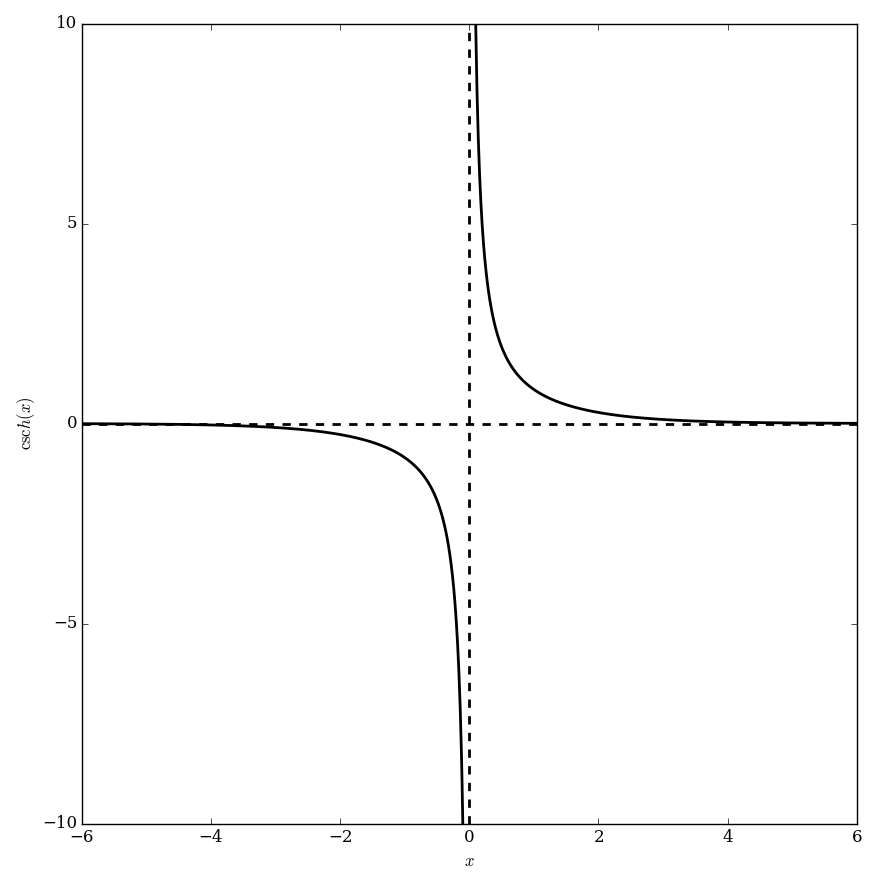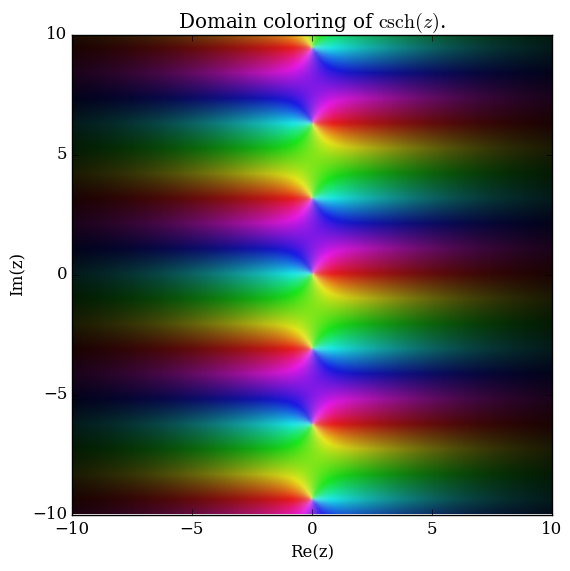Difference between revisions of "Csch"
From specialfunctionswiki
| Line 24: | Line 24: | ||
* {{BookReference|Handbook of mathematical functions|1964|Milton Abramowitz|author2=Irene A. Stegun|prev=Tanh|next=Sech}}: 4.5.4 | * {{BookReference|Handbook of mathematical functions|1964|Milton Abramowitz|author2=Irene A. Stegun|prev=Tanh|next=Sech}}: 4.5.4 | ||
| − | + | {{:Hyperbolic trigonometric functions footer}} | |
[[Category:SpecialFunction]] | [[Category:SpecialFunction]] | ||
Revision as of 03:41, 6 July 2016
The hyperbolic cosecant function $\mathrm{csch} \colon \mathbb{R} \setminus \{0\} \rightarrow \mathbb{R} \setminus \{0\}$ is defined by $$\mathrm{csch}(z)=\dfrac{1}{\sinh(z)},$$ where $\sinh$ denotes the hyperbolic sine. Since this function is one-to-one, its inverse function, the inverse hyperbolic cosecant function is clear.
Domain coloring of analytic continuation of $\mathrm{csch}$.
Properties
Derivative of hyperbolic cosecant
Antiderivative of hyperbolic cosecant
Relationship between csch and csc
Relationship between cot, Gudermannian, and csch
Relationship between csch, inverse Gudermannian, and cot
See Also
References
- 1964: Milton Abramowitz and Irene A. Stegun: Handbook of mathematical functions ... (previous) ... (next): 4.5.4

